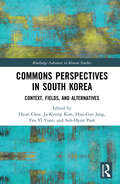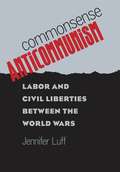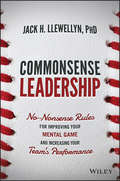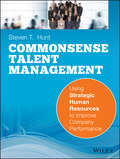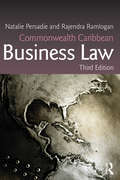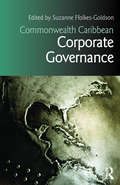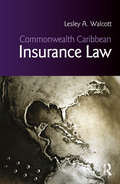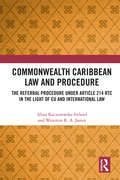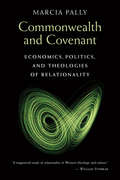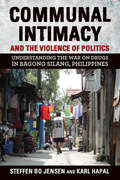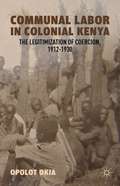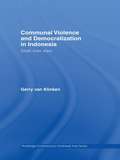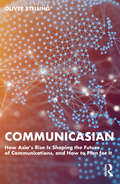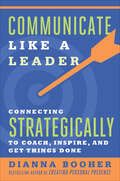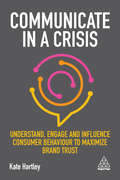- Table View
- List View
CommonSpirit Health: Integrating a Merger of Equals
by Robert S. Huckman Hise Gibson Nicole GilmoreSoon after closing the 2019 merger of Catholic Health Initiatives (CHI) and Dignity Health to create CommonSpirit Health, Lloyd Dean and Kevin Lofton--jointly appointed to the role of CEO--must make several operational and strategic decisions related to the integration of the legacy organizations. As the second-largest, non-profit hospital system in the United States, CommonSpirit Health was focused on improving population health and increasing the value of the care it delivered to patients. To achieve these objectives, Dean and Lofton needed to make decisions about the extent to which key activities, such as branding and electronic health records, would be consolidated for all of CommonSpirit Health or allowed to remain as parallel functions attached to the legacy organizations. The case allows for a discussion of issues associated with the process and governance of post-merger integration in complex service organizations, with a particular emphasis on such topics in the context of the health care industry.
Commons Perspectives in South Korea: Context, Fields, and Alternatives (Routledge Advances in Korean Studies)
by Hyun Choe, Ja-Kyung Kim, Hun-Gyo Jang, Yea-Yl Yoon, and Suh-Hyun ParkSince its founding in 2011, the Research Center on the Commons and Sustainable Society has been at the forefront of Commons Research in South Korea. This book brings together the discoveries and insights the Center has produced in its first decade, as a contribution to international commons research and to the understanding of the commons in South Korea particularly. Divided into five main parts, the book charts the course of commons research in South Korea. Part I surveys the historical background to commons thinking through the course of its foundation as a dictator-led developmental state through to its current democratic and neoliberal status quo. Following on from this, Part II looks at how diverse commons perspectives have taken root during this period. Part III then analyses the various specific fields through which commons research in Korea has grown. After this, Part IV presents the fruits of this commons research—the alternative policies and social actions that have been proposed for Korean society. Lastly, Part V addresses the remaining challenges which ongoing commons research in Korea is seeking to address. An insightful resource for scholars of both Korean political economy and commons studies more broadly.
Commonsense Anticommunism
by Jennifer LuffBetween the Great War and Pearl Harbor, conservative labor leaders declared themselves America's "first line of defense" against Communism. In this surprising account, Jennifer Luff shows how the American Federation of Labor fanned popular anticommunism but defended Communists' civil liberties in the aftermath of the 1919 Red Scare. The AFL's "commonsense anticommunism," she argues, steered a middle course between the American Legion and the ACLU, helping to check campaigns for federal sedition laws. But in the 1930s, frustration with the New Dealorder led labor conservatives to redbait the Roosevelt administration and liberal unionists and abandon their reluctant civil libertarianism for red scare politics. That frustration contributed to the legal architecture of federal anticommunism that culminated with the McCarthyist fervor of the 1950s.Relying on untapped archival sources, Luff reveals how labor conservatives and the emerging civil liberties movement debated the proper role of the state in policing radicals and grappled with the challenges to the existing political order posed by Communist organizers. Surprising conclusions about familiar figures, like J. Edgar Hoover, and unfamiliar episodes, like a German plot to disrupt American munitions manufacture, make Luff's story a fresh retelling of the interwar years.
Commonsense Leadership: No Nonsense Rules for Improving Your Mental Game and Increasing Your Team's Performance
by Jack H. LlewellynWin the mental game before you ever step out on the field Commonsense Leadership is the playbook for leaders who want to win. From rallying the team to hitting it out of the park, every leader needs to understand the mental game. It's what separates winners from survivors, and champions from second place--it's what gives your team the edge, and the strength to forge ahead through adversity. This book shows you how to boost performance with tips and advice gathered over 45 years of working with major corporations and world-class athletes. Whether your team battles on the field or in the boardroom, the mental component is a critical factor in determining outcomes--and left neglected, can become the number-one driving force behind failure. A winning team must be highly skilled, but they must also be resilient, motivated, attentive, and ready to charge the field. Skills can be taught, but the mental factor comes from the environment and the leadership. This book shows you how to boost performance, with real-world solutions for instilling that razor-sharp mental edge. Emerge from setbacks stronger and more agile Learn to thrive on stress and play on the emotional edge Build a culture and environment that fosters motivation Adopt practical strategies for leading your team to win When equal opponents are matched, winning ultimately comes down to mindset. Although sports analogies are ubiquitous in corporate leadership, the mental development aspect is too often ignored--but those who play the mental game and play it well have an unmistakable edge. Commonsense Leadership reveals the secrets to motivation and performance, with practical techniques for building a winning team.
Commonsense Talent Management
by Steven T. HuntA comprehensive guide to using strategic HR methods to increase company performance. This book explains what strategic human resources means, how it differs from other HR activities, and why it is critical to business performance. It walks through key questions for designing, deploying and integrating different strategic HR processes including staffing, performance management, compensation, succession management, and development The book also addresses the role of technology in strategic HR, and discusses how to get companies to support, adopt, and maintain effective strategic HR processes The book includes dozens of illustrative examples of effective and ineffective strategic HR using stories drawn from a range of companies and industries.
Commonwealth Bank of Australia: Unbanklike Experimentation
by Ryan W. Buell Leslie K. JohnIn August 2017, Commonwealth Bank of Australia was looking for ways to differentiate itself from competing banks, and was also trying to improve the financial wellbeing of its customers. One domain where this was particularly relevant was in its bank-issued credit card business, where customers routinely selected cards that although profitable for the bank could be a poor fit for customers' needs - leading to low satisfaction scores, cancellations, and occasionally, financial distress. To that end, the company's Behavioral Economics team had developed a provocative experiment dubbed "The Good and the Bad." Rather than just presenting the strengths of its various credit card offerings, they proposed also promoting each credit card's less-obvious drawbacks. Being transparent with customers might help them make better choices, but would those choices come at the expense of bank performance? Should a company choose to be in the sales prevention business?
Commonwealth Care Alliance: Elderly and Disabled Care
by Michael E. Porter Jennifer F. BaronIndividuals enrolled in both Medicare and Medicaid, known as dual eligibles, are among the highest-cost beneficiaries in the US. Commonwealth Care Alliance, a small nonprofit insurer and care delivery system in Massachusetts, operated under a public demonstration program designed to provide comprehensive coverage and care for the elderly dual eligible population. Led by Dr. Robert Master, Commonwealth Care Alliance worked with its contracted providers to implement and support a care delivery model that could allow as many members as possible to live independently outside of nursing homes. The case examines Commonwealth Care Alliance's insurance and care delivery approaches amidst a changing policy environment and various resource constraints. This case can be used to teach: Approaches to value-based insurance and care delivery; Insurance and care delivery considerations for underserved, high-cost populations; Evolution and structure of US Medicare and state Medicaid programs and demonstrations; and payer and provider reimbursement models.
Commonwealth Caribbean Business Law (Commonwealth Caribbean Law)
by Natalie Persadie Rajendra RamloganNow in its third edition, Commonwealth Caribbean Business Law continues to break away from the traditional English approach of treating business law primarily as the law of contract and agency. Taking a panoramic view, it explores the foundation of various legal systems before examining areas of legal liability that affect business activities. These include areas such as contract law, tort law, criminal law, agency and internet law which present significant challenges confronting the business sector. The book primarily targets the development of business law principles in several Caribbean Commonwealth jurisdictions but, where appropriate, also embraces the jurisprudence of other Commonwealth nations, such as the United Kingdom, Canada and Australia. It also explores the United States as a non-Commonwealth jurisdiction, given the increasing importance in the Caribbean of judicial pronouncements relating to internet law from this territory. Using excerpts from key judgments, the book allows students, particularly those with a non-legal background, to understand key legal principles for business as presented by the judiciary and draws parallels between legal theory and business practice.
Commonwealth Caribbean Company Law (Commonwealth Caribbean Law)
by Andrew BurgessIn the last twenty five years, company law in the Commonwealth Caribbean has undergone dramatic changes, from a model influenced by English law to a new, harmonised collection of regional legislation based on the Caricom and CLI model Acts that vary substantially across Caricom member states. The variation within Caribbean company law presents an enormous challenge, both in terms of the breadth of the subject and in addressing the difference in provisions of one state’s Company Law Act as opposed to another. Using the Caricom model Act and CLI model Act as a basis for its structure, Commonwealth Caribbean Company Law examines and compares regional implementation of company law in an accessible and comprehensive manner that will be invaluable to students and practitioners in the region.
Commonwealth Caribbean Corporate Governance (Commonwealth Caribbean Law)
by Suzanne Ffolkes-GoldsonCorporate governance initiatives have been developing at a rapid pace in the Commonwealth Caribbean through legislation, case law and codes. Commonwealth Caribbean Corporate Governance offers an overview of current practice and legal developments in corporate governance, highlighting the interpretation of the legislation through case law and the codes of corporate governance which have now been implemented. It also considers the challenges which emerging markets face in an attempt to adopt the corporate governance initiatives of developed markets. This text explores the emergence and development of corporate governance in the region from a range of angles, including the protection and empowerment of shareholders, the impact on government agencies, and the role and responsibilities of directors and officers in companies and in government agencies. Written by a panel of academics, legal practitioners and experts working in business, this book will be an invaluable resource for judges, lawyers, corporate executives and students of business, corporate law and corporate management.
Commonwealth Caribbean Insurance Law (Commonwealth Caribbean Law)
by Lesley A WalcottThis book sets out in a clear and concise manner the central principles of insurance law in the Caribbean, guiding students through the complexities of the subject. This book features, among several other key themes, extensive coverage of: insurance regulation; life insurance; property insurance; contract formation; intermediaries; the claims procedure; and analysis of the substantive laws of several jurisdictions. Commonwealth Caribbean Insurance Law is essential reading for LLB students in Caribbean universities, students in CAPE Law courses, and practitioners.
Commonwealth Caribbean Law and Procedure: The Referral Procedure under Article 214 RTC in the Light of EU and International Law
by Alina Kaczorowska-Ireland Westmin R. JamesCommonwealth Caribbean Law and Procedure: The Referral Procedure under Article 214 RTC in the Light of EU and International Law is about the referral procedure set out in Article 214 of the Revised Treaty of Chaguaramas (RTC), which Treaty established the Caribbean Community Single Market and Economy (CSME). Article 214 RTC bears clear parallels to Article 267 of the Treaty on the Functioning of the European Union (TFEU), the most important being that that both articles pursue the same objective, i.e. they seek to ensure that CSME law and EU law, respectively, are uniformly applied in all Member States. Although Article 214 RTC was inspired by, and modelled on, Article 267 TFEU, it is not its exact replica. The similarities and differences between Article 214 RTC and Article 267 TFEU are critically assessed in this book. Also, the book: Examines how Article 214 RTC operates in the Caribbean context, how it interacts with other provisions of the RTC, and how it fits into the various national legal systems of the Member States of the CSME. Explores possible reasons why, so far, national courts of the Member States of the CSME have not made any referrals to the Caribbean Court of Justice (CCJ). Puts Article 214 RTC in a comparative perspective; in particular, the book compares and contrasts it with Article 267 TFEU. Examines some of the aspects of Article 214 RTC in the light of public international law, bearing in mind that under Article 217(1) RTC, the CCJ is required, when exercising its original jurisdiction under Article 211 RTC, to "apply such rules of international law as may be applicable." This is to ensure that the CCJ will not bring in a finding of non liquet on the ground of silence or obscurity of CSME law, which Article 217(2) RTC expressly prohibits. This book will be of interest to academics and students studying CSME law, EU law, and comparative law, as well as judges, lawyers, and governmental and non-governmental organizations from the Caribbean region.
Commonwealth and Covenant: Economics, Politics, and Theologies of Relationality
by Marcia PallyIn Commonwealth and Covenant Marcia Pally argues that in order to address current socioeconomic problems, we need not more economic formulas but rather a better understanding of how the world is set up — an ontology of how we and the world work. Without this, good proposals that arise lack political will and go unimplemented. Pally describes our basic setup as “separability-amid-situatedness” or “distinction-amid-relation.” Though we are all unique individuals, we become our singular selves through our relations and responsibilities to the people and environments around us. Pally argues that our culture’s overemphasis on “separability” — individualism run amok — results in greed, adversarial and deceitful political discourse and chicanery, resource grabbing, broken relationships, and anomie. Maintaining that separability and situatedness can and must be considered together in public policy, Pally draws on intellectual history, philosophy, and — especially — historic Christian and Jewish theologies of relationality to construct a new framework for addressing present economic and political ills.
Commonwealth and Covenant: Economics, Politics, and Theologies of Relationality
by Marcia PallyIn Commonwealth and Covenant Marcia Pally argues that in order to address current socioeconomic problems, we need not more economic formulas but rather a better understanding of how the world is set up — an ontology of how we and the world work. Without this, good proposals that arise lack political will and go unimplemented. Pally describes our basic setup as &“separability-amid-situatedness&” or &“distinction-amid-relation.&” Though we are all unique individuals, we become our singular selves through our relations and responsibilities to the people and environments around us. Pally argues that our culture&’s overemphasis on &“separability&” — individualism run amok — results in greed, adversarial and deceitful political discourse and chicanery, resource grabbing, broken relationships, and anomie. Maintaining that separability and situatedness can and must be considered together in public policy, Pally draws on intellectual history, philosophy, and — especially — historic Christian and Jewish theologies of relationality to construct a new framework for addressing present economic and political ills.
Communal Intimacy and the Violence of Politics: Understanding the War on Drugs in Bagong Silang, Philippines
by Steffen Bo Jensen Karl HapalCommunal Intimacy and the Violence of Politics explores the notoriously brutal Philippine war on drugs from below. Steffen Bo Jensen and Karl Hapal examine how the war on drugs folded itself into communal and intimate spheres in one Manila neighborhood, Bagong Silang. Police killings have been regular occurrences since the birth of Bagong Silang. Communal Intimacy and the Violence of Politics shows that although the drug war was introduced from the outside, it fit into and perpetuated already existing gendered and generational structures. In Bagong Silang, the war on drugs implicated local structures of authority, including a justice system that had always been deeply integrated into communal relations. The ways in which the war on drugs transformed these intimate relations between the state and its citizens, and between neighbors, may turn out to be the most lasting impact of Duterte's infamously violent policies.
Communal Labor in Colonial Kenya
by Opolot OkiaThis project examines the development of forced labor in colonial Kenya from 1912 to 1930 and the parallel normalization of communal forced labor during this time period. The colonial reinvention of traditional unpaid labor was, as the noted historian of Kenya, Robert Maxon, has stated, 'based upon a completely fallacious view of the traditional history of Kenya's people. ' Even among certain ethnic groups with a nebulous tradition of communal or collective labor, the labor requirements under communal labor were frequently distorted to the point were coerced labor no longer resembled its community based origins. State manipulation of these communal obligations was, in fact, part of a more general phenomenon in Africa. Europeans in Africa made use of invented tradition to both co-opt and ideologically solidify certain Africans into positions of leadership, like chiefs, and to also redefine relationships between Europeans and Africans. Seen by the state as merely an extension of tribal duties and resurrected as another phantom of customary law, communal labor was not actually exploitation but a form of relearning. In the case of communal labor, the British in Kenya used the Native Authority Ordinance to 'invent' traditional powers that galvanized the authority of chiefs to call out the labor. Conversely, chiefs also took advantage of these 'traditional' mandates to enhance their own status.
Communal Violence and Democratization in Indonesia: Small Town Wars (Routledge Contemporary Southeast Asia Series #Vol. 15)
by Gerry van KlinkenThrough close scrutiny of empirical materials and interviews, this book uniquely analyzes all the episodes of long-running, widespread communal violence that erupted during Indonesia’s post-New Order transition. Indonesia democratised after the long and authoritarian New Order regime ended in May 1998. But the transition was far less peaceful than is often thought. It claimed about 10,000 lives in communal (ethnic and religious) violence, and nearly as many as that again in separatist violence in Aceh and East Timor. Taking a comprehensive look at the communal violence that arose after the New Order regime, this book will be of interest to students of Southeast Asian studies, social movements, political violence and ethnicity.
CommunicAsian: How Asia's Rise Is Shaping the Future of Communications, and How to Plan for It
by Oliver StellingThe rise of Asia has changed the world, now shaped by greater global connectivity, geopolitics and shifting spheres of influence. Tapping into research and decades of experience in the world’s fastest-moving markets, this book makes a compelling case for a new and future-ready approach to communications planning and implementation, which the Asian Century demands. Facing a new operating environment, policymakers and business leaders have to act quickly. This book outlines the necessary adjustments to long-established practices and value propositions in both corporate and government communications and provides a step-by-step plan for strategy development, laid out in a two-pronged approach designed to appeal to a multicultural audience. It is an essential read for global practitioners and students in international relations and mass communications.
Communicate Like a Leader: Connecting Strategically to Coach, Inspire, and Get Things Done
by Dianna Booher John Britt Ed Jent&“Great leaders are great communicators…If you want to become a top-notch strategic communicator, you&’d do well to heed the advice in [this book&’s] pages.&” —Marshall Goldsmith, New York Times-bestselling author of What Got You Here Won&’t Get You ThereAn Axiom Awards Silver Medal Winner People often get promoted to leadership positions without knowing how to communicate an inspiring strategic vision to the people who report to them. So they focus on what they know: tactics, not strategy. As a result, they become stuck in micromanagement mode—driving people away instead of drawing them in. Dianna Booher wants to prevent micromanagement before it happens by providing you with the right leadership communication skills. Grounded in extensive research, this book offers practical guidelines to help professionals think, coach, converse, speak, write, meet, and negotiate strategically to deliver results. In thirty-six brief chapters, Booher shows you how to communicate effectively to audiences up and down the organization so you can fulfill your most essential responsibilities as a leader. &“If you&’re a micromanager, you need to know it&’s not just ineffective—it&’s also the most labor-intensive leadership style. When you read Communicate like a Leader, you&’ll learn strategic communication skills that will improve your relationship with your people and actually make leading easier.&” —Ken Blanchard, New York Times-bestselling coauthor of The New One Minute Manager
Communicate for Buy-In: Engaging and Enabling the Whole Organization
by Dan S. CohenOrganizational change, by definition, cannot take place in a vacuum; communicating in a concise, candid, heart-felt manner is critical to the success of your change effort. This chapter describes key activities and tactics, and provides several assessment tools that will help you move individuals from total lack of awareness of the problem to understanding and committing to the vision.
Communicate for Buy-In: Toward Successful Large-Scale Change
by John P. Kotter Dan S. CohenIn successful change efforts, the direction of change is widely communicated for both understanding and gut-level buy-in. This chapter guides you through this step in the change process, highlighting some of the reasons vision communication typically fails, and providing examples of what it looks like when organizations succeed at getting as many people as possible acting to make the change vision a reality.
Communicate in a Crisis: Understand, Engage and Influence Consumer Behaviour to Maximize Brand Trust
by Kate HartleyCommunicate in a Crisis is the definitive guide for any PR or marketing professional to recognize, plan and respond to a sudden wildfire of consumer-led reaction, 'manipulated outrage' sparked from interaction on news feed algorithms, fuelled by social media and the constant demand for an instantaneous response.This book turns the traditional crisis management approach on its head, starting by understanding changing consumer behaviours and the new 'threat' for brands, then outlining practical steps to prepare, synchronize and execute a coordinated brand response across all channels - under pressure. It reveals why we love to hate our favourite brands, how to recognize a day to day problem from a crisis, and offers valuable advice, such as using influencers and brand advocates to address social media trolls, rumours and the impact of fake news. With unique case studies, interviews and anecdotes from global leaders, Communicate in a Crisis will embed a bottom-up culture of long-term reputation management, always ready to face the unexpected.
Communicate or Die - Mit Sprache führen: Außergewöhnliche Ergebnisse durch zielgerichtete Kommunikation
by Thomas D. ZweifelWer wirksam sprechen und zuhören kann, erhält bessere Informationen und strategische Erkenntnisse, bessere Mitarbeitende und Ergebnisse. Wie dies gelingt, zeigt dieses Buch. Wenn Kommunikation wirklich das Wasser ist, in dem Führungskräfte schwimmen, dann spielt die Sprache eine wesentliche Rolle für den Erfolg eines jeden Unternehmens und Managers. Dieses Buch bietet eine Fülle konkreter Werkzeuge und faszinierender Beispiele für wirksame Kommunikation. Und es hält sein Versprechen: einen gewaltigen Zuwachs in der Wirksamkeit Ihrer Kommunikation und letztlich Erfolg und Erfüllung im Geschäftsleben wie auch zu Hause. Neu in dieser vollständig überarbeiteten Auflage sind die Kommunikation in den Neuen Medien, Business-Blabla, Management-Euphemismen und die Macht der Sprache. Fazit: Unbedingt lesen und sich inspirieren lassen.

